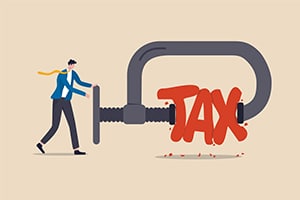
Business Advisory Services
Everything you need to help you launch your new business entity from business entity selection to multiple-entity business structures.
Hey - Our site just had a makeover and we are sorting through the hiccups!
Hey - Our site just had a makeover and we are sorting through the hiccups!

Everything you need to help you launch your new business entity from business entity selection to multiple-entity business structures.

Designed for rental property owners where WCG CPAs & Advisors supports you as your real estate CPA.

Everything you need from tax return preparation for your small business to your rental to your corporation is here.

WCG’s primary objective is to help you to feel comfortable about engaging with us

 Good news from the IRS. They recently released Notice 2018-76 which essentially restores the business meals tax deduction that small business owners have leveraged in the past to help grow their business.
Good news from the IRS. They recently released Notice 2018-76 which essentially restores the business meals tax deduction that small business owners have leveraged in the past to help grow their business.
How did we get here?
The Tax Cuts and Jobs Act of 2017 removed entertainment from available business tax deductions. The way Section 274 was written after TCJA and using historical interpretations, it could have been viewed that business meals with a client or customer was actually entertainment which happens to involve a meal.
The IRS recognized the confusion brought out by the changes in Section 274 as part of TCJA, so they came out with Notice 2018-76. A little background first… Here is the blurb from IRS Pub 463 which defines entertainment as-
Entertainment. Entertainment includes any activity generally considered to provide entertainment, amusement, or recreation. Examples include entertaining guests at nightclubs; at social, athletic, and sporting clubs; at theaters; at sporting events; on yachts; or on hunting, fishing, vacation, and similar trips.
Entertainment also may include meeting personal, living, or family needs of individuals, such as providing meals, a hotel suite, or a car to customers or their families.
A meal as a form of entertainment. Entertainment includes the cost of a meal you provide to a customer or client, whether the meal is a part of other entertainment or by itself. A meal expense includes the cost of food, beverages, taxes, and tips for the meal. To deduct an entertainment-related meal, you or your employee must be present when the food or beverages are provided.
Caution- this is the old rule from IRS Publication 463 for Travel, Entertainment, Gift, and Car Expenses. The Tax Cuts and Jobs Act of 2017 put this in limbo because Section 274 was heavily modified. Now we have Notice 2018-76 to connect the dots between Pub 463, TCJA, Section 274 and business meals.
Now with the clarification offered by IRS Notice 2018-76, 50% of business meals may still be deducted if you follow these guidelines as outlined in the notice-
Here is an example of a business meals tax deduction that is allowed (straight from the wizards at the IRS who label everyone as A and B)-
Taxpayer A invites B, a business contact, to a baseball game. A purchases tickets for A and B to attend the game. While at the game, A buys hot dogs and drinks for A and B.
The baseball game is entertainment as defined in § 1.274-2(b)(1)(i) and, thus, the cost of the game tickets is an entertainment expense and is not deductible by A. The cost of the hot dogs and drinks, which are purchased separately from the game tickets, is not an entertainment expense and is not subject to the § 274(a)(1) disallowance. Therefore, A may deduct 50 percent of the expenses associated with the hot dogs and drinks purchased at the game.
There are more examples in the IRS notice, but you get the idea. Old school is now the same school, just make sure you disconnect the meal from the entertainment. And no boosting the meal bill to reduce the entertainment bill just to be able to deduct it- “this hot dog cost $100, but it came with a free baseball ticket.” Ummm… Nope! See #5 above.
Other considerations that are commonly forgotten-
The IRS will be updating Section 274 to reflect the interpretations above. Congress butchered it with crayon, and it needs a makeover. “Makeover: IRS Style” That is must-see TV right there!
Jason Watson, CPA is the Managing Partner of WCG (formerly Watson CPA Group), a business consultation and tax preparation firm, and is the author of Taxpayer’s Comprehensive Guide on LLC’s and S Corps which is available online.

Learn about important tax deadlines, document checklists and due dates, and other essential tax return information.
Jason Watson, CPA is a Partner and the CEO of WCG CPAs & Advisors, a boutique consultation and tax preparation CPA firm located in Colorado, and is the author of Taxpayer’s Comprehensive Guide on LLC’s and S Corps and I Just Got a Rental, What Do I Do? which are available online and from mostly average retailers.

Learn about important tax deadlines, document checklists and due dates, and other essential tax return information.
Jason Watson, CPA is a Partner and the CEO of WCG CPAs & Advisors, a boutique consultation and tax preparation CPA firm located in Colorado, and is the author of Taxpayer’s Comprehensive Guide on LLC’s and S Corps and I Just Got a Rental, What Do I Do? which are available online and from mostly average retailers.
With state apportionment and tax return preparation, there are two issues at play- apportionment itself, and then state tax return

Tax planning season is here! Let's schedule a time to review tax reduction strategies and generate a mock tax return.

Tired of maintaining your own books? Seems like a chore to offload?
Did you want to chat about this? Do you have questions about us? Let’s chat!
The tax advisors, business consultants and rental property experts at WCG CPAs & Advisors are not salespeople; we are not putting lipstick on a pig expecting you to love it. Our job remains being professionally detached, giving you information and letting you decide within our ethical guidelines and your risk profiles.
We see far too many crazy schemes and half-baked ideas from attorneys and wealth managers. In some cases, they are good ideas. In most cases, all the entities, layering and mixed ownership is only the illusion of precision. As Chris Rock says, just because you can drive your car with your feet doesn’t make it a good idea. In other words, let’s not automatically convert “you can” into “you must.”
Let’s chat so you can be smart about it.
We typically schedule a 20-minute complimentary quick chat with one of our Partners or our amazing Senior Tax Professionals to determine if we are a good fit for each other, and how an engagement with our team looks. Tax returns only? Business advisory? Tax strategy and planning? Rental property support?

Everything you need to help you launch your new business entity from business entity selection to multiple-entity business structures.

Designed for rental property owners where WCG CPAs & Advisors supports you as your real estate CPA.

Everything you need from tax return preparation for your small business to your rental to your corporation is here.

WCG’s primary objective is to help you to feel comfortable about engaging with us
